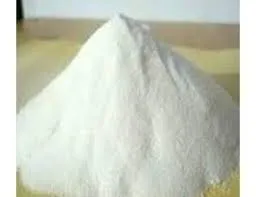
Dec . 01, 2024 06:56 Back to list
Optimizing HPMC for Enhanced Detergent Performance and Formulation Efficiency
Understanding HPMC in Detergents A Versatile Additive
Hydroxypropyl methylcellulose (HPMC) has gained significant attention in the formulation of various cleaning products, especially detergents. This semi-synthetic polymer derives from cellulose, making it biodegradable and environment-friendly. Its unique properties make it a suitable additive that enhances the effectiveness and performance of detergents across several applications.
What is HPMC?
HPMC is a non-ionic, water-soluble polymer and is obtained from cellulose through a series of chemical processes that involve etherification. It is widely recognized for its versatility and the ability to modify the behavior of different formulations. Due to its ether bonds, HPMC exhibits excellent film-forming characteristics, thickening abilities, and viscosity modification, making it a valuable component in various applications, including pharmaceuticals, cosmetics, construction, and, importantly, detergents.
Benefits of Incorporating HPMC in Detergents
1. Thickening Agent HPMC significantly increases the viscosity of liquid detergents, leading to improved product stability and better performance. A stable formulation reduces the likelihood of separation and sedimentation, extending the shelf-life of the product.
2. Enhanced Cleaning Power HPMC can improve the cleansing efficiency of detergent formulations. By modifying the rheological properties of the cleaning solution, HPMC helps maintain a uniform distribution on the surface being cleaned. This uniformity enhances soil removal and stain lifting, effective for various surfaces, including fabrics and hard surfaces.
3. Film-Forming Properties The ability of HPMC to form a protective film on surfaces post-cleaning is another noteworthy characteristic. This film not only enhances the shine and appearance of the surface but also offers a degree of protection against future dirt buildup, providing consumers with a longer-lasting clean.
4. Compatibility HPMC is compatible with a wide range of ingredients found in detergents. This property allows formulators to create complex formulations with various surfactants, enzymes, and fragrance components without compromising stability or efficacy.
hpmc for detergent

5. Environmental Friendliness With growing environmental concerns, incorporating biodegradable ingredients like HPMC into detergent formulations aligns with consumer preferences for green products. Being derived from natural cellulose, HPMC can enhance the sustainability profile of cleaning products, appealing to eco-conscious consumers.
Applications in Detergent Formulations
HPMC can be found in various types of detergents, ranging from laundry detergents to household cleaners and industrial formulations.
- Laundry Detergents In liquid laundry detergents, HPMC serves as a thickener and stabilizer. It enhances the product's viscosity, allowing for better handling and dispensing while increasing the product's cleaning power.
- Dishwashing Liquids HPMC offers superior cleaning performance in dishwashing formulations. Its ability to modify viscosity ensures that the detergent clings better to dishes, improving cleaning efficiency and reducing the amount of product needed.
- Surface Cleaners The film-forming property of HPMC is particularly useful in surface cleaners, giving a streak-free shine and reducing the frequency of cleaning required on various surfaces.
Conclusion
The integration of hydroxypropyl methylcellulose (HPMC) into detergent formulations showcases the importance of employing versatile and effective additives in today's cleaning products. Its multifunctional properties not only enhance the physical and chemical characteristics of detergents but also align with current environmental standards. As the demand for more effective, sustainable cleaning solutions continues to rise, the role of HPMC will likely become even more prominent in the detergent industry.
-
Versatile Hpmc Uses in Different Industries
NewsJun.19,2025
-
Redispersible Powder's Role in Enhancing Durability of Construction Products
NewsJun.19,2025
-
Hydroxyethyl Cellulose Applications Driving Green Industrial Processes
NewsJun.19,2025
-
Exploring Different Redispersible Polymer Powder
NewsJun.19,2025
-
Choosing the Right Mortar Bonding Agent
NewsJun.19,2025
-
Applications and Significance of China Hpmc in Modern Industries
NewsJun.19,2025







